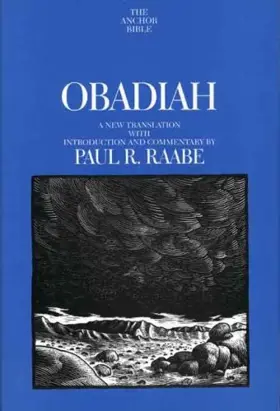

Obadiah
Pages
336
Publisher
Yale University Press
Published
1/1/1996
ISBN-13
9780300139716
Obadiah exemplifies the classic Israelite prophetic tradition. This brief but volatile diatribe encompasses many of the great prophetic themes, such as divine judgment against Israel's enemies, the day of Yahweh, Zion theology, Israel's possession of the promised land, and the kingship of Yahweh. These themes allow Obadiah to transcend time and touch upon some of the modern Middle East's most controversial issues. Its harsh language and pro-Israelite zeal spark debate even today. Through his accurate translation and sympathetic interpretation of what the book meant to its original sixth-century audience, Dr. Paul R. Raabe relates the reader's modern world to that of the ancient Near East.
In the reverend Anchor Bible tradition, the commentator provides the contextual framework to make sense of Obadiah's cryptic and often ignored prophetic message. Drawing upon an exhaustive analysis of the books grammar and philology, literary forms and context, religious and social situation, and historical context, Dr. Raabe offers us the most informed and up-to-date commentary available. Scholars, students, clergy, and laypeople will rely on Obadiah for years to come.
In the reverend Anchor Bible tradition, the commentator provides the contextual framework to make sense of Obadiah's cryptic and often ignored prophetic message. Drawing upon an exhaustive analysis of the books grammar and philology, literary forms and context, religious and social situation, and historical context, Dr. Raabe offers us the most informed and up-to-date commentary available. Scholars, students, clergy, and laypeople will rely on Obadiah for years to come.
Collections
This book appears in the following featured collections.
- Tremper Longman's 5-Star Commentaries by Tremper Longman III
- Ultimate Commentary Collection: OT Technical by John Glynn
- TGC: Scholarly Commentaries by The Gospel Coalition
Reviews
Raabe draws upon an exhaustive analysis of the book’s grammar and philology, literary forms and context, religious and social situation, and historical context.. Through his accurate translation and sympathetic interpretation of what the book meant to its original sixth-century audience, Raabe relates the world of the ancient Near East to the reader’s modern world, providing a contextual framework that makes sense of Obadiah’s cryptic and often ignored prophetic message.
[Full Review]




